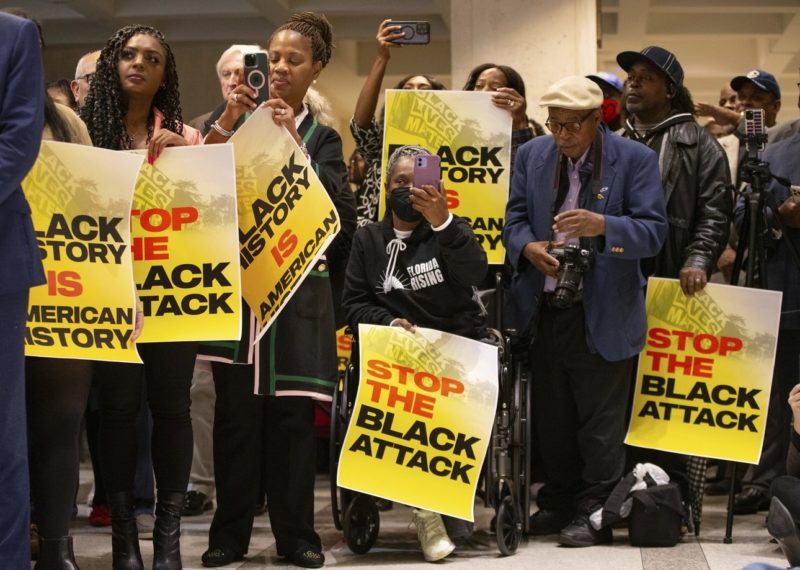Black History Month scrutinized amid conservative backlash to race in education
Share
Explore Our Galleries
Breaking News!
Today's news and culture by Black and other reporters in the Black and mainstream media.
Ways to Support ABHM?
by Kiara Alfonseca, ABC News

Across the country, conservative lawmakers are targeting lessons on race.
Black history – particularly how it’s taught and which perspectives are included – has become the center of debate in schools across the country.
As teachers begin their Black History Month lessons amid the conservative backlash against certain lessons on race, some worry about the future of the annual celebration as well as its place in education.
“We have to continue to make sure that people recognize that Black history is unique in itself, and there’s no American history without it,” Sharif El-Mekki, the co-founder of the Center for Black Educator Development, told ABC News.
The national racial reckoning in the spring and summer of 2020 prompted many schools across the U.S. to begin embracing and implementing in-depth curriculum and literature to discuss race, diversity and equity.
Lorena Germán, co-founder of anti-racism education organization Multicultural Classroom, said honest lessons about Black history in the U.S., supplemented by conversations on racism and equity make for a well-rounded education.
Germán told ABC News. “So if we’re doing that, anti-racism has to be a part of this conversation, in addition to other things.”
However, the efforts have not come without backlash.
For example, the College Board is preparing to expand its AP African American Studies pilot curriculum to hundreds of schools.
It recently released its official framework, with changes and removals of some of the most controversial topics after the course was rejected by the Florida Department of Education, who said it is “inexplicably contrary to Florida law and significantly lacks educational value…”
The lesson plan conflicted with Florida’s so-called “Stop WOKE” Act, which restricts certain race-related content in workplaces, schools and colleges in the state. However, it’s restrictions on higher education have been blocked and are being battled out in the courts.
“We seek normalcy, not philosophical lunacy, we will not allow reality, facts and truth to become optional. We will never surrender to the woke mob. Florida is where woke goes to die,” Gov. Ron DeSantis said during his Jan. 3 inauguration.
“Woke” is defined by the DeSantis administration as “the belief there are systemic injustices in American society and the need to address them,” according to DeSantis’ general counsel, as reported by The Washington Post.
Meanwhile, in New York, one of the educators teaching the pilot Advanced Placement African American Studies course told ABC News that her students were incredibly engaged with the course content and excited to learn.
Enjoy the complete article here.
For more Breaking News click here.
For more ABHM galleries click here.









Comments Are Welcome
Note: We moderate submissions in order to create a space for meaningful dialogue, a space where museum visitors – adults and youth –– can exchange informed, thoughtful, and relevant comments that add value to our exhibits.
Racial slurs, personal attacks, obscenity, profanity, and SHOUTING do not meet the above standard. Such comments are posted in the exhibit Hateful Speech. Commercial promotions, impersonations, and incoherent comments likewise fail to meet our goals, so will not be posted. Submissions longer than 120 words will be shortened.
See our full Comments Policy here.